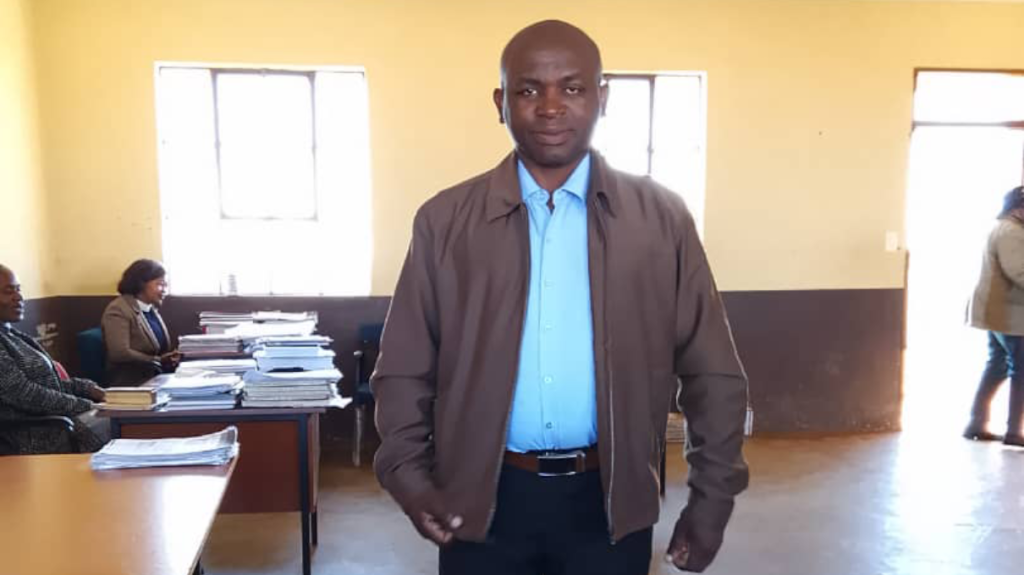
By Own Correspondent
For a decade, Oswald Simelane stood at the front of classrooms as a contract teacher, shaping generations of EmaSwati children. His dedication never wavered, yet as retirement approaches, one truth weighed heavily; unlike his permanent colleagues, he would leave with nothing.
He was a contract teacher at the primary school level for eight years, and now he is at Mlindzini High School for another year.
The lack of pension benefits for contract teachers has been a long-standing issue in the country. Many have served for years without any retirement benefits, a significant point of concern for the contract teachers, their colleagues, and family members.
Against this backdrop, the Eswatini National Provident Fund (ENPF) has been tasked by the Government to lead the way towards conversion to a national pension scheme. This is where the proposed Eswatini National Pension Fund Bill, 2025, is seen as a lifeline.
The move is intended to shift from a once-off lump sum payout to a guaranteed monthly pension for life. This is aimed at combating high poverty rates among the elderly and extending social security to previously excluded groups, such as workers in the informal sector and, critically, contract teachers.

Simelane believes the conversion is a welcome change. He notes that for years, contract teachers have worked without the security of a pension, unlike their permanent colleagues who receive a substantial lump sum upon retirement.
“The conversion is making us happy because for years, many contract teachers have been working and some of them reach the retirement age, and you find that they get nothing at all, yet those who are permanent go home with a lump sum,” he says.
“The conversion is good as it will go a long way to fight poverty and ensure that the many years of sacrifice, hard work, and selfless contribution of contract teachers to educating our children is rewarded accordingly at the end of their working life. It removes uncertainty.”
While Simelane enthusiastically supports the proposed conversion into a pension scheme as a “really great initiative” that provides long-awaited security, he also voices a concern that is being directly addressed by ENPF.
He expressed a fear that contributions might “dig deep into our pay, which is already lower than the permanent.” However, he noted that if deductions are kept at the current E400 statutory contribution, it would be a reasonable amount that would not significantly impact their remuneration.

“ENPF welcomes this transparent dialogue as it underscores our commitment to a member-centric approach. We are proactively addressing all stakeholder questions to provide clarity and build trust,” said ENPF CEO Futhi Tembe, when addressing the Eswatini Editors Forum, recently.
“By openly communicating the details of the contribution structure, we ensure that every member, regardless of their current salary, understands how this conversion will protect their financial future and provide the long-term dignity they deserve. This is a testament to our commitment to a transparent and inclusive transition for all.”
Simelane’s story is not unique. Thousands of contract teachers, domestic workers, drivers, guards, and waitresses have long carried Eswatini’s economy but retired into poverty. That, finally, is about to change. The Bill promises to rewrite this national story. For the first time, every worker, whether in formal employment or the vast informal sector, will qualify for a guaranteed monthly pension for life.
This is no cosmetic adjustment. It replaces the provident fund model, where workers received a one-off lump sum that often vanished in weeks, with a sustainable pension system built on contributions, solidarity, and risk pooling. Members will need at least 15 years of contributions, ensuring the fund is fully financed and shock-resistant from day one. The government has called this reform “a landmark step in extending dignity to every worker,” and with good reason; it answers the cries of the forgotten majority.
Domestic Workers: “We Can Retire With Dignity”
For decades, thousands of domestic workers formed the silent foundation of Swati households, raising children, cooking, and cleaning, all without any retirement safety net.
“This new pension plan is so good,” says Hlengiwe Matsebula, a 38-year-old domestic worker from Siteki. She has been a domestic worker for a long time, and like many others, she is worried about what will happen when she can no longer work.
“We domestic workers welcome this, as many in our field have it hard,” she says. “When we get old and can’t work anymore, we have nothing. We face a lot of problems just to feed our children.”
“I’m so happy the talk has started. My boss is a good person, and I hope the government can talk to all the bosses so they can put aside some money for us. This will give us a pension when we are too old to work. It will give us a better life. I fully support this because it gives me hope for a better future for my family.”
Phumzile Masimula of Msunduza said she fully supports the proposed national pension fund.
“This move gives us hope for a better future, and it will help us fight poverty when we are old. I urge those who are against it to think about the greater good of the whole nation, and not just a few individuals. This is a chance for all of us to have a better life, and we must not let it pass. It is time for us to have peace of mind, knowing that when we stop working, we will still have something to live on,” Masimula said.
Security Guards and Farm Workers: “At Last, We Belong”

A security guard from Manzini, who identified himself only as Simelane, spoke in his personal capacity, stating that this proposed pension plan is “not just good for us security guards, it is good for all emaSwati.”
He emphasised that this conversion will give security guards a pension and remove the uncertainty they face at the end of their working lives. He added that he hopes for a “win-win situation” for all stakeholders, including their employers, whom he described as open to new ideas.
This newfound sense of security extends to those who work the land, like farm worker Sibusiso Mamba from Shiselweni. “I have worked on farms since I was a teenager,” he says. “When the rains fail, we suffer. At least now, when I grow old, I won’t depend on good weather. I will have a pension.”
Petrol Attendants, Drivers and Waiters: “We Can Plan for Tomorrow”
The move towards a national pension fund is giving a voice and a sense of security to those who have long worked tirelessly without a safety net. This reform is proving to be a lifeline for workers in professions often overlooked by traditional social security systems.

“I’m Liyandza Ngubane, a petrol attendant from Pigg’s Peak. I’m very glad about this proposed national pension scheme. It’s a good thing for my colleagues and our employers, too. They all want us to have a better life, and working together, this pension will meet us at our point of need. We work hard, but when we get old, we have no retirement package. This new law makes me feel safe. It tells me that when I am old, I will get money every month. This is good because it will help me and my family. It gives me hope for a better future.”
His words are echoed by Mzwandile Shongwe, a public service driver. “I’ve been a bus driver for 20 years, and not once did I think about a pension,” says Shongwe. “Every day is about fuel, tyres, and surviving traffic. This is the first time the government is thinking about us.”
Taxi driver Mrs. Zanele Magagula nods in agreement, saying driving is hard, and they never have benefits like office workers. “Now we know when we stop working, something will still come in every month. That gives us peace.”

For waitresses, Siphosethu Matsenjwa adds, “I always thought when I get old, I’ll have nothing. But now I can save knowing there is a pension waiting. It helps us plan for tomorrow. It is life-changing for my colleagues and me and also our families.”
FREE FUNERAL COVER: A Lifeline of Dignity
The ENPF’s commitment to dignity goes beyond pensions, with the Siphephelo Free Funeral Cover. This non-contributory benefit provides both financial security and peace of mind.
In the event of a member’s death, Siphephelo offers a crucial lifeline. Beneficiaries receive a payout of E7,500 for a normal death and E15,000 for accidental death, plus E200 in Eswatini Mobile airtime for funeral arrangements. To maintain integrity, members must have contributed for at least three consecutive months within the past year. Claims are processed within 24 hours of documentation.
As ENPF CEO Futhi Tembe explains, “This is more than a financial policy; it is about preserving dignity, supporting our members’ families, and reinforcing our mission to safeguard the well-being of all who trust us with their contributions.”
For Bagezile Mbhamali, whose mother benefited from Siphephelo, the policy was a lifeline. “Even though she had been ill for a long time and her other policies had lapsed, Siphephelo contributed E5,000. It allowed us to give our mother a dignified farewell. I can’t stress enough how much relief and peace of mind this gave our family,” she recalls.
Siphephelo is a promise to those who often feel overlooked. As Nomcebo Maseko of Manzini reflects, “Many of us don’t have savings or extra policies. Siphephelo ensures that, no matter our income, our families are protected. It’s a promise that our lives and contributions matter.” By offering a benefit that is not an additional burden, ENPF demonstrates that its mandate is not just about pensions, but about dignity in life and in death.
